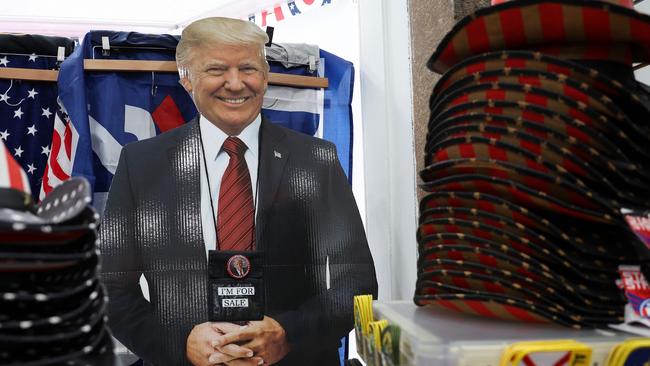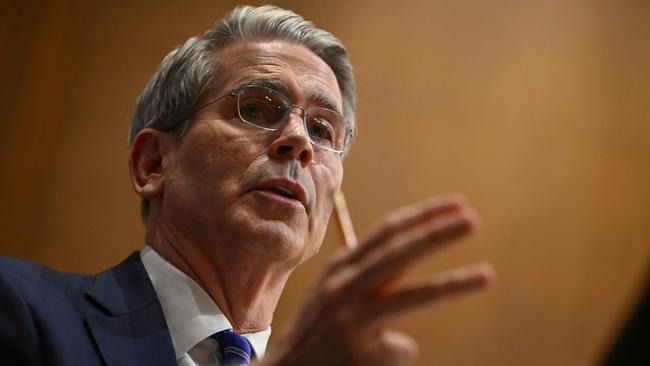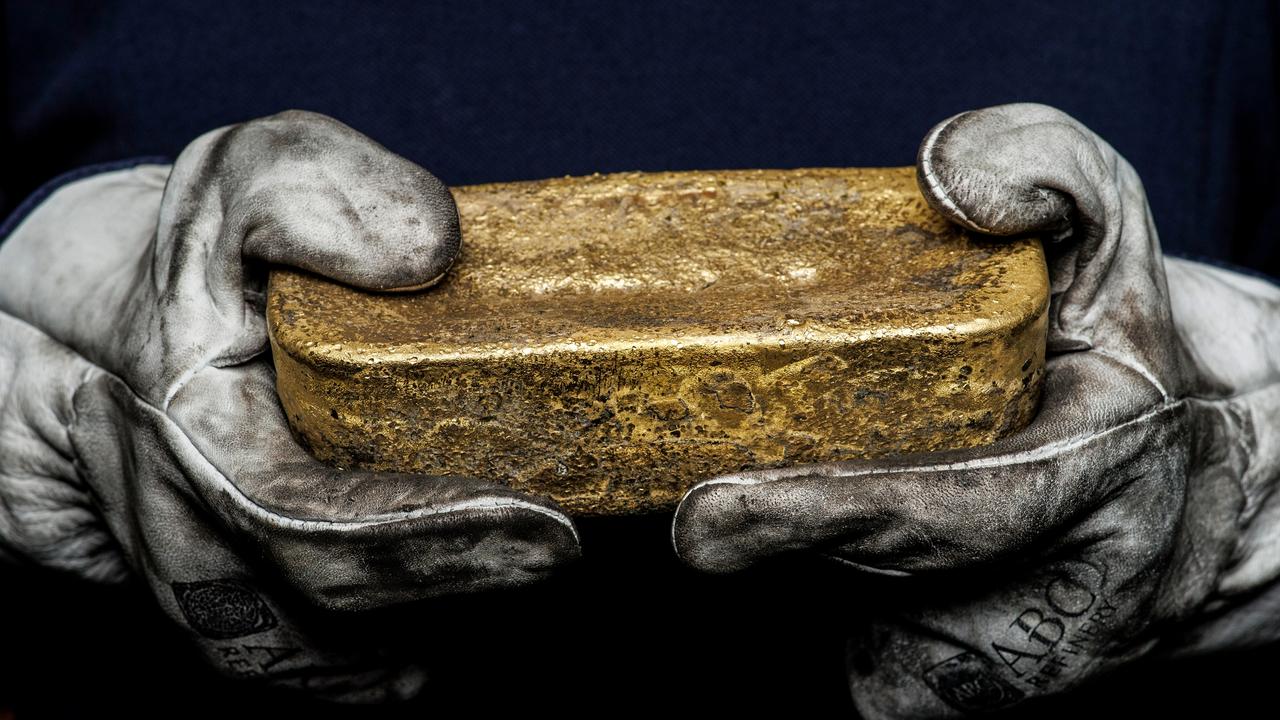Tremors felt across markets in the Trump ‘will he or won’t he guessing game
A rollercoaster ride for financial markets in the past week is likely to continue after the inauguration of Donald Trump on Monday because uncertainty about his policies endures.

Business
Don't miss out on the headlines from Business. Followed categories will be added to My News.
It was a volatile week for markets as US interest rate expectations fluctuated after stronger-than-expected non-farm payrolls and lower-than-expected CPI and PPI data.
The 10-year US Treasury yield hit a 14-month high of 4.81 per cent, pushing the US dollar up to its highest level in more than two years, at which point it was up 10 per cent since late September.
Stocks suffered their biggest one-day falls in months and the Aussie dollar dived to a near four-year low of US61.30c. But by the end of the week the US dollar and bond yields had peaked, at least for the short term. Risk assets including stocks, commodities and the Aussie dollar found support.
It came as the inflation data restored expectations of multiple interest rate cuts by the US Federal Reserve, even as the economic outlook continued to be strong. The Goldilocks narrative was back.
However, further volatility could be in store next week with Donald Trump’s inauguration as US president.
US markets are closed on Monday for Martin Luther King Day.
Australian markets will be among the first to reopen and react to Trump’s inauguration speech, which is due at about noon US Eastern Time on Monday (4am AEDT Tuesday).
Looking ahead to Trump’s inauguration, some analysts have started to canvass the possibility of a “buy-on-fact” reaction from risk assets like Aussie dollar, which has fallen sharply in recent months.

The US dollar could well retreat and stocks may get a boost if US bond yields continue to fall, assuming Trump’s plans for tariffs, immigration and tax cuts are no more than expected.
The US Treasury market took some comfort in the fact that incoming Treasury secretary Scott Bessent said all the right things in his Senate confirmation testimony on Thursday.
Mr Bessent emphasised the need to address the budget deficit and adjust domestic discretionary spending, but without Social Security and Medicare cuts. He said Trump’s economic policies would lift real wages and bring inflation closer to the Fed’s 2 per cent target, and he promised to respect the Fed’s independence. Bessent also wants the US dollar to keep its reserve currency status.
Together with the lower-than-expected US inflation data and a dovish comments on US interest rates by FOMC member Chris Waller, the reassuring testimony from Bessent helped trim the 10-year US Treasury yield to 4.61 per cent by Thursday – 20 basis points below the week’s high.
Of course markets may not get as much clarity as they would like next week.
And Trump may initially keep pushing for extreme measures on US trade and immigration.
“There is significant risk of early tariffs that surprise the market, which makes holding US dollars attractive,” Citi head of G10 FX strategy Daniel Tobon said.
“Less likely is an immediate shift to more moderate tariff language by Trump; but should that be seen, we would flip short US dollars – especially against high beta currencies like the Aussie dollar.”

The US dollar index has priced in a “moderate degree of tariffs” and was about 3 per cent overvalued relative to the six biggest currencies, including the Aussie dollar.
“We view this overvaluation as specific to tariff premia, as other Trump policy impacts should already be reflected in the rates component,” Mr Tobon said.
Consistent with a Bloomberg report this week – which wasn’t rejected by Trump – Citi expects US tariff increase to be gradual and a tool to engage in trade deal negotiations.
Citi doesn’t expect anywhere near the extreme level of tariffs that Trump has been pronouncing. The incoming president has called for a tariff of at least 60 per cent on China, 25 per cent on Mexico and Canada, and 10 to 20 per cent broad tariffs with all other US trading partners.
It’s also consensus that Trump is “more bark than bite” on tariffs. US dollar overvaluation isn’t excessive and commodity pricing implies a 50 per cent chance of broad 10 per cent tariffs.
So this “asymmetry” isn’t enough to sell the US dollar until there is greater certainty, Mr Tobon said. Moreover, large and sudden tariffs could result in a “much sharper rally in the US dollar”.
“This suggests that even if the US dollar were to peak in coming weeks at slightly higher levels than current spot, a full reversal of the major US dollar rally of the previous months is unlikely,” he said.
For the first quarter and possibly the first half of 2025, Citi expects the US dollar to be in a higher range than it was through most of 2023 and 2024.
Despite reports of gradual and moderate tariffs being on the cards, this messaging is coming from moderates like Bessent, Stephen Miran and Kevin Hassett, who are more focused on overall financial stability rather than on the trade balance.
Other key Trump advisers like Peter Navarro, Jamieson Greer and JD Vance are “significantly more hawkish on trade and see the large current account deficit as one of the main issues that needs to be addressed to help workers,” according to Mr Tobon.
“Trump himself is somewhere in the middle,” he said. “Ideologically, he is significantly more hawkish on trade, and views tariffs as an effective tool. But he also recognises the importance of financial markets stability and frequently uses the stock market as a key metric for his policies.
He thinks Trump will ultimately take a more gradual approach to tariffs to avoid volatility.
But it’s a “delicate balancing act”, with his initial rhetoric likely to be “very hawkish as part of a negotiation tactic” and his initial comments “risk being hawkish relative to market expectations”.
“Therefore, the bar to surprise on the hawkish side with respect to tariffs and trade is actually low,” Mr Tobon said.
Originally published as Tremors felt across markets in the Trump ‘will he or won’t he guessing game



